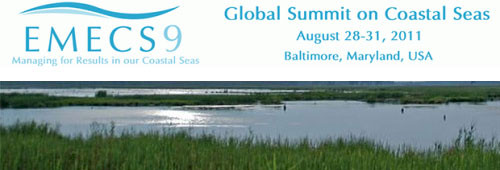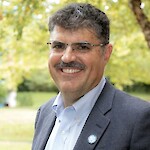Global Summit on Coastal Seas Conference
Dave Nemazie · | Learning Science | 
The Integration and Application Network and the University of Maryland Center for Environmental Science would like to make you aware of the upcoming Environmental Management of Enclosed Coastal Seas (EMECS) conference entitled "Global Summit on Coastal Seas". The abstract deadline is 25 February.
The conference goal is to improve our ability to manage coasts in all their ecological, economic, and cultural dimensions. The conference will work to cross barriers of discipline and culture by bringing together experts and stakeholders from different backgrounds to share information, insights, and lessons learned. With over 400 participants expected to attend from the academic, government, private, education, and NGO sectors, we anticipate this conference to be a great learning experience for all participants. Conference themes include accountability, sustainability, finance and funding, multilateral partnerships, underlying science, and innovative education and communication.
Since the first EMECS conference in Kobe, Japan, in 1990, this international gathering has met to discuss these issues. Conferences have been held in Sweden, Turkey, Thailand, France, China, and the United States. When EMECS was last held in the U.S. (in Maryland in 1993), it drew more than 600 participants from more than 40 nations. EMECS 9 promises to return that same excitement to Baltimore, Maryland in August 2011.
The conference will take place from 28-31 August in Baltimore, Maryland overlooking its harbor which has gone through an amazing renaissance. Please visit the conference website, or email the conference planner, Jhanna Gilbert (jhanna@ufl.edu) should you have any questions or require additional information.

About the author
Dave Nemazie

Dave Nemazie has extensive experience in aquatic research, science and policy interface, university administration, partnership development, and public relations. He has developed new partnerships with the public, private, and non-profit sector, locally as well as internationally. He is passionate about environmental science: both communicating its relevance to the public and its impact on the decision making process. He received a MS in marine sciences while studying the ecology of zooplankton in Chesapeake Bay through the University of Maryland College Park.